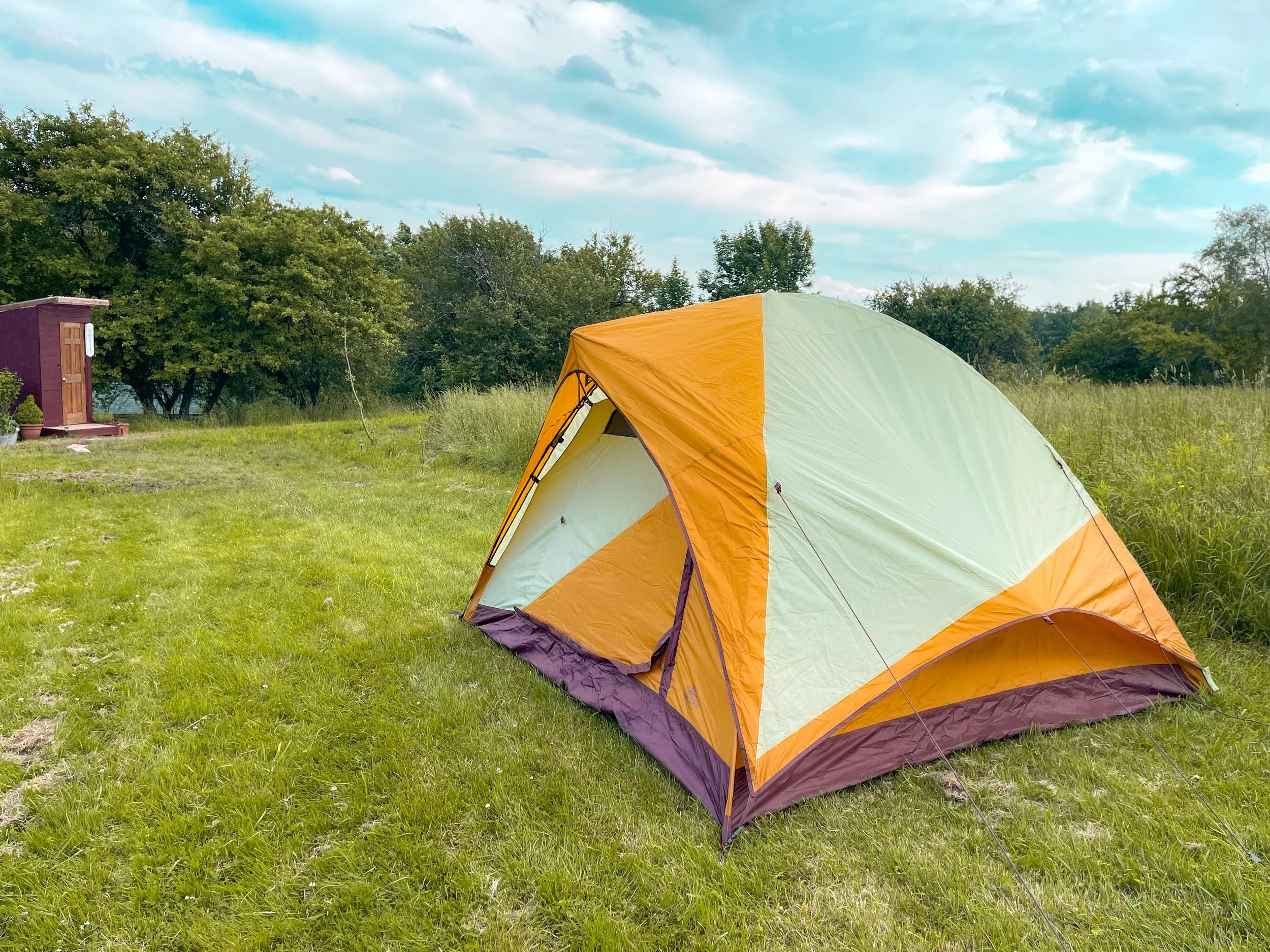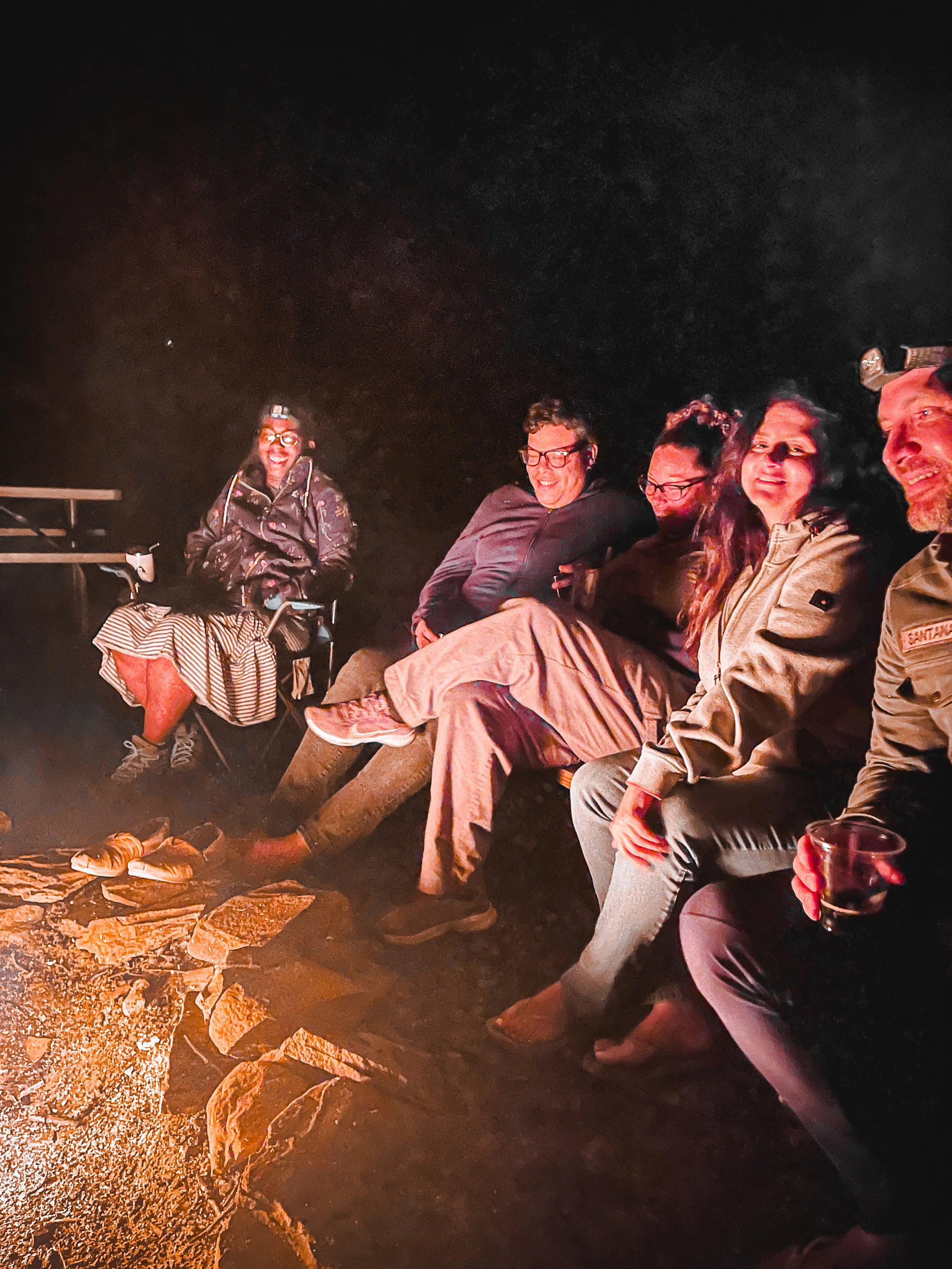How to Create a No-Bug Zone at Your Campsite (Naturally!)
Camping in the summer is pure magic — long days, starry skies, fresh air, and time away from screens. Whether you're heading out for a weekend festival, pitching a tent in the Catskills, or renting gear from Basecamp Brooklyn for your next adventure, nothing ruins the vibe faster than a swarm of mosquitoes or a surprise tick encounter.
The good news? You don’t need harsh chemicals or a hazmat suit to enjoy a bug-free camping experience. With a little preparation and a few natural strategies, you can keep pests at bay — and do it in a way that’s better for your body and the environment.
Here’s how to protect your campsite (and your sanity) from bugs this summer.
1. Choose the Right Campsite (But Don’t Stress If You Can’t)
Avoid standing water: Mosquitoes love to breed in stagnant water — puddles, ponds, even damp leaves. If you can, pitch your tent on dry, elevated ground and away from obvious bug hotspots.
Catch the breeze: Flying insects aren’t strong fliers. If there's a natural breeze or open clearing, that airflow can help keep mosquitoes and gnats away from your tent and hangout area.
Higher ground = fewer bugs: Bugs tend to hang out in low, humid, wooded areas. Elevation and openness can help — but again, it’s not always possible depending on your trip or campsite availability.
Dusk and dawn = bug bonanza: Bugs are most active at sunrise and sunset… which, yes, is also when most of us want to enjoy a cozy campfire or cook dinner outside. And if it rained recently? Even more bugs. That’s why everything else in this guide — from your clothing choices to your sleeping setup — becomes even more essential when you can’t avoid peak bug hours or perfect insect conditions.
2. Wear Clothing That Protects Without Overheating
Long sleeves and pants: Loose-fitting, lightweight fabrics like linen or moisture-wicking synthetics can help protect your skin while keeping you cool.
Light colors are your friend: Bugs are more attracted to dark colors. Dressing in light, neutral tones helps you blend in — to them, at least!
Tuck and tie: Tucking your pants into your socks and your shirt into your waistband creates a barrier, especially helpful for avoiding ticks in grassy or wooded areas.
3. Choose Human- and Earth-Friendly Bug Repellents
Natural essential oil sprays: Skip the synthetic stuff and try blends with citronella, lavender, eucalyptus, or cedarwood oil. Here are our favorite store bought sprays for mosquitos and ticks.
DIY bug spray: Mix distilled water with witch hazel or vodka and a few drops of your favorite insect-repelling essential oils. Keep it in a reusable spray bottle. Check out our tried and true recipe that all our friends rave about.
Permethrin for gear: If you're in tick-heavy areas, you can treat your clothing and tent with permethrin (a synthetic version of a natural chrysanthemum extract). Just don’t spray it directly on skin.
4. Secure Your Sleeping Space
Check your tent mesh: Make sure there are no tears in the netting. Even a small hole is a big welcome sign for bugs.
Keep it zipped: Always zip your tent immediately, even if you're just stepping out for a minute.
Add an extra layer of protection: Hang additional bug netting inside your tent or over your hammock for peace of mind — especially in high-bug areas.
Natural repellent candles: Citronella, lemongrass, or cedarwood candles can create a calming scent and help form a bug-repelling perimeter.
Keep It Sealed: Always keep your tent doors closed and repair any holes or tears. Inspect your tent for any small gaps where bugs could sneak in.
5. Stay Clean and Scent-Free
No snacks in the tent: Food and wrappers attract more than just bugs. Keep all food sealed and stored well away from your sleeping space. Note! This is also an important bear safety measure.
Skip the scented lotions and perfumes: Bugs love sweet smells. Use fragrance-free personal care products while camping.
Dry your gear: Damp towels and clothing are a beacon for flies and gnats. Hang wet items far from your tent and wait until they’re bone dry before bringing them back in.
6. Be Tick-Smart
Do daily tick checks: After hiking, walking through tall grass, or spending time in wooded areas, do a full-body inspection — especially behind your knees, underarms, waistline, around your ears, and in your hair.
Remove ticks safely and completely: If you find a tick, use fine-tipped tweezers or a Tick Key to remove it properly. The Tick Key tool is lightweight, easy to use, and designed to remove the entire tick without squeezing — making it a must-have on any camping trip.
To remove a tick:
Grasp it as close to the skin’s surface as possible.
Pull upward with steady, even pressure (no twisting).
Clean the area with soap and water or rubbing alcohol afterward.
Ticks can carry serious diseases like Lyme, so the earlier you catch and remove them, the better.
7. Set Up a Bug-Free Camp Zone
Fans work wonders: Bugs aren’t strong fliers. A battery-powered or rechargeable fan can keep air circulating and help deter mosquitoes and gnats — especially useful while cooking or relaxing at your picnic table.
Smoke signals: Insects naturally avoid smoke, which makes a campfire a built-in bug deterrent (plus, who doesn’t love that smoky, cozy vibe?). Add herbs like sage, rosemary, or pine needles to the fire for an extra aromatic boost.
No fire? No problem: If you’re not near your campfire or are under fire restrictions, you can still harness the power of smoke. Use a traditional sage bundle (also known as a smudge stick) and a fire-safe bowl to gently waft smoke around your sitting area, gear, or tent entrance. It’s a time-honored method that not only helps repel bugs but can also create a grounding, intentional ritual to start or end the day.
Don’t let the bugs stop your fun!
Camping in the summertime can be an incredible experience, offering a chance to connect with nature and unwind from the hustle and bustle of everyday life. By taking these precautions and being mindful of your surroundings, you can significantly reduce the likelihood of bug bites and other insect-related annoyances. So pack your gear, follow these tips, and enjoy a bug-free camping adventure!














